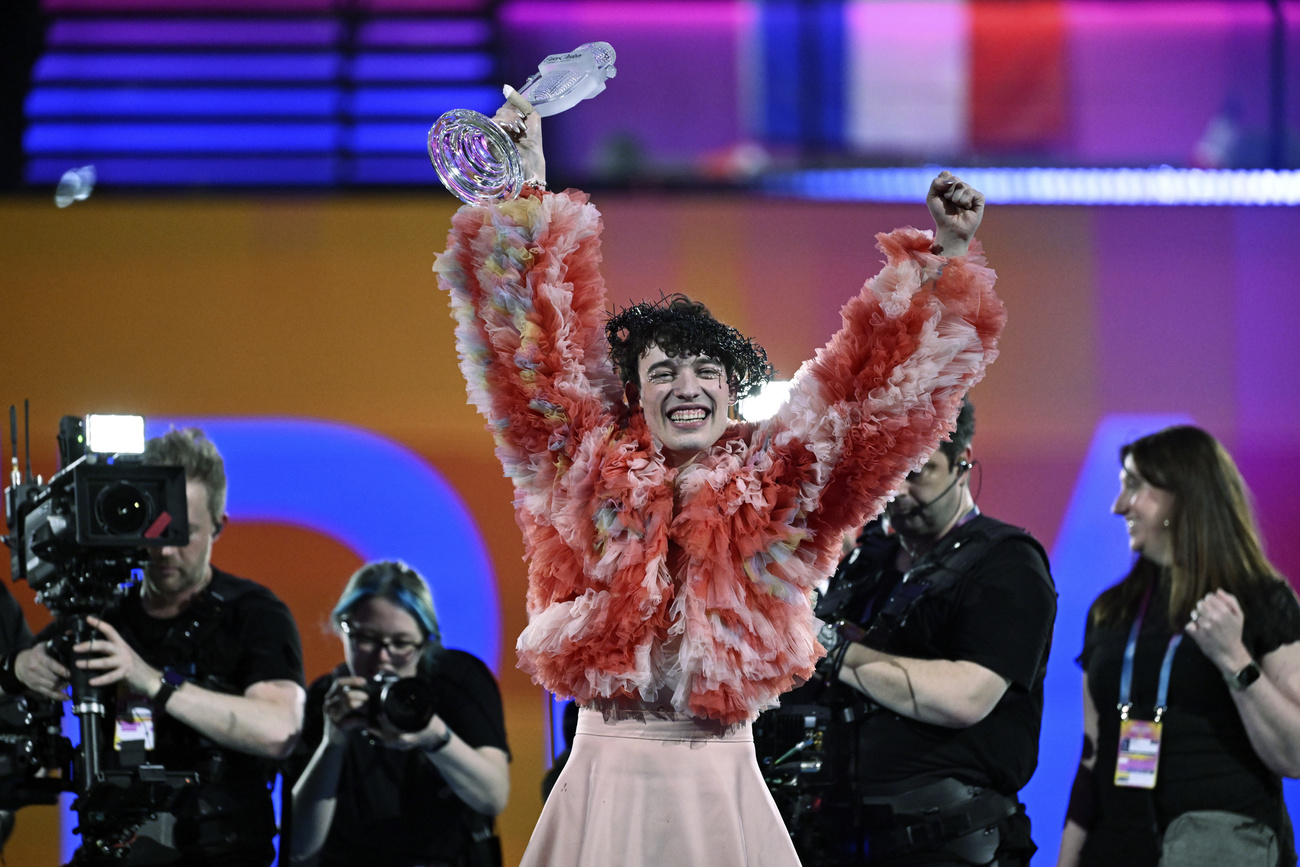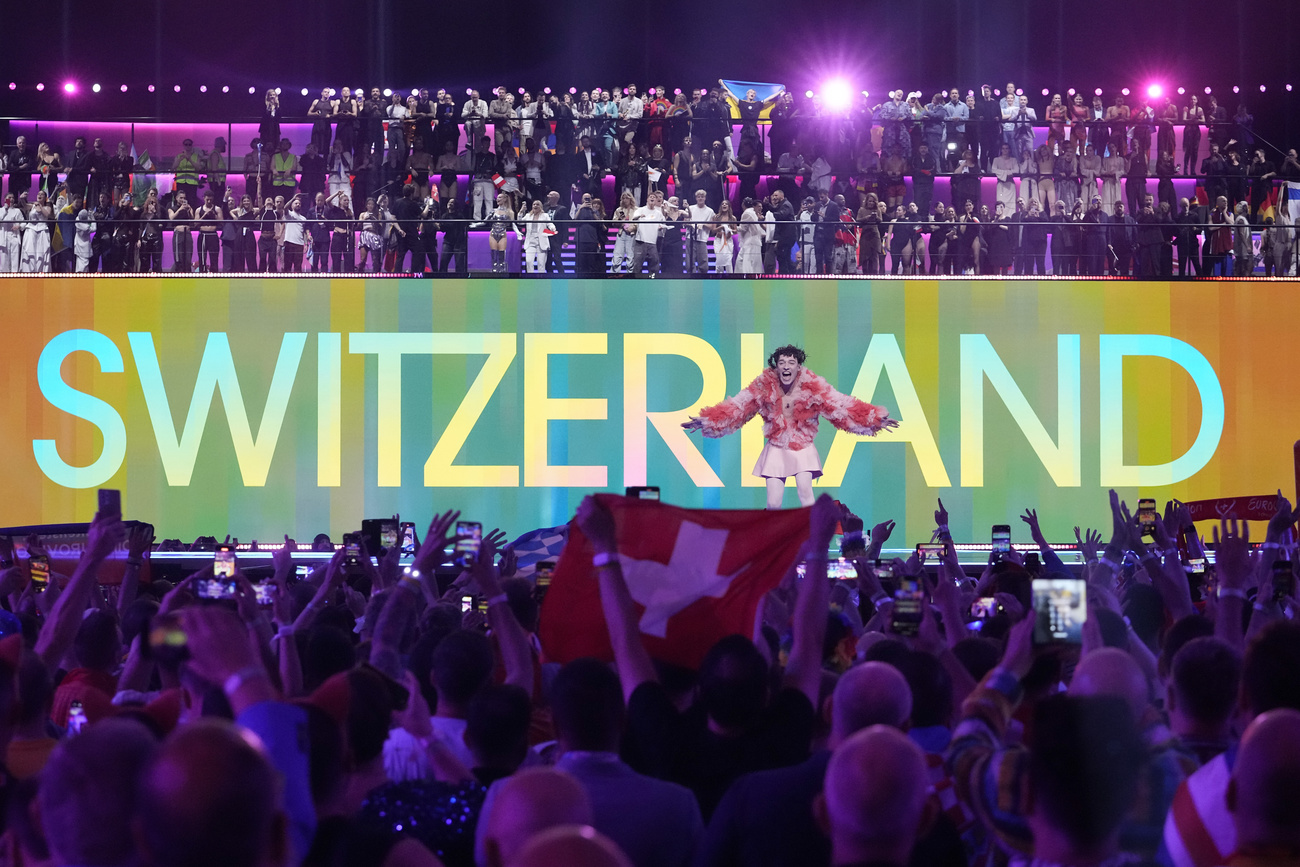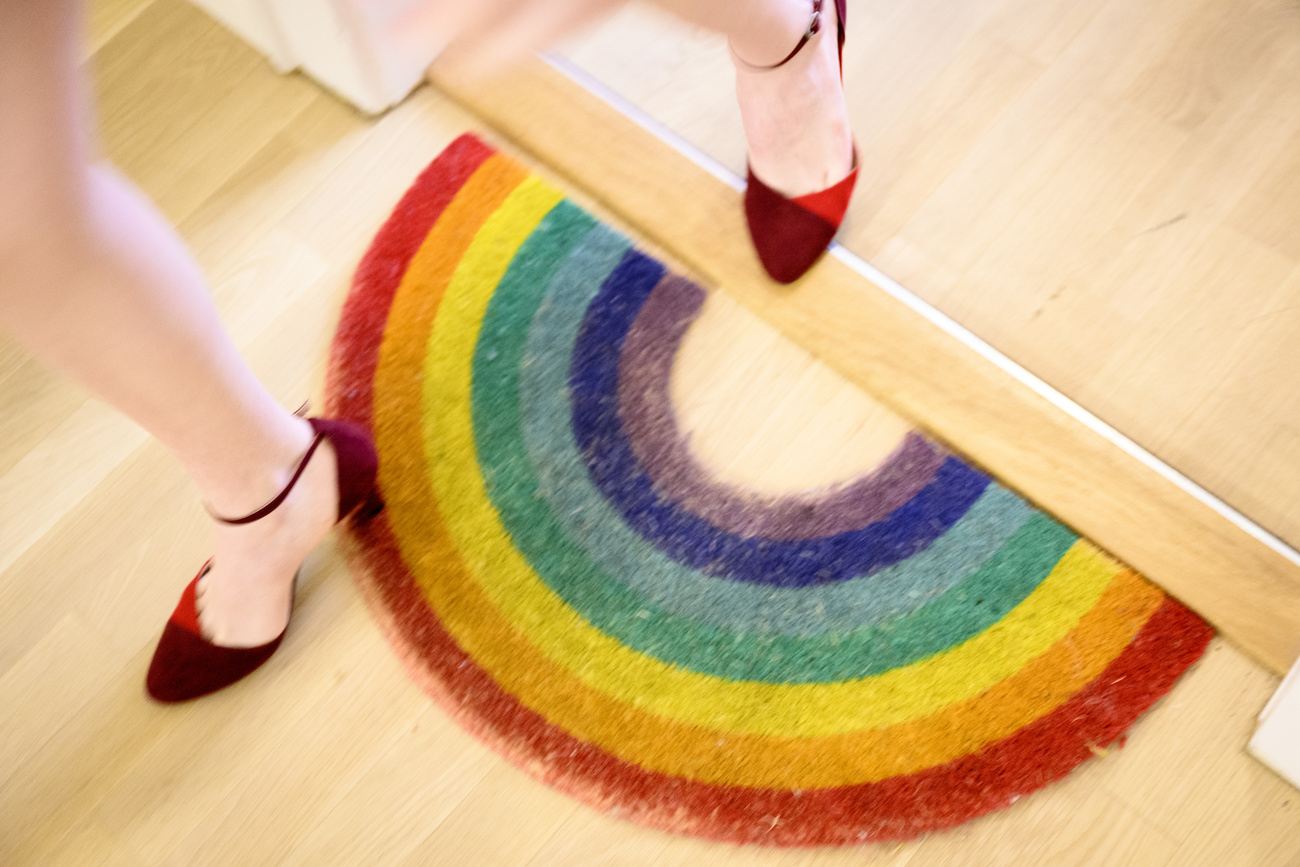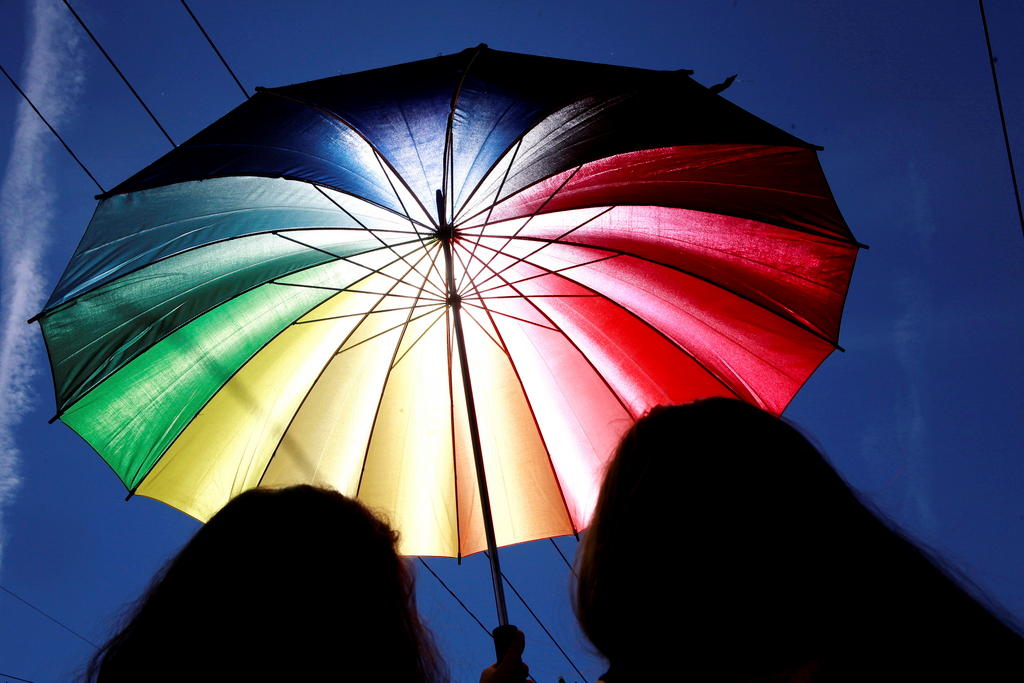Swiss Eurovision winner: Nemo and the fight for non-binary people

Swiss musician Nemo, who won the Eurovision Song Contest for Switzerland on Saturday, is fuelling the debate about a third gender entry. Barbara Steinemann, a parliamentarian from the right-wing Swiss People’s Party, believes this is unnecessary.
The issue: After winning the Eurovision Song Contest, Nemo called for more acceptance and rights for non-binary people, including the possibility of choosing a third option when registering one’s gender. The Swiss musician, who doesn’t identify with either the male or female gender and who uses the pronouns they/them, made this demand several times after their victory. Nemo has announced their intention to meet Justice Minister Beat Jans.
The non-binary community is delighted: Nemo’s victory is very symbolic, says Sandro Niederer, managing director of Transgender Network Switzerland. In the song The Code, Nemo describes a non-binary person’s journey with the topic of gender in society – “the fact that this is becoming visible is very valuable for our community,” Niederer said, adding that the considerable visibility that Nemo has generated is enabling a discourse and triggering demands for the equality of non-binary people in Switzerland.

More
Rainbow families start to colour Swiss media
What is being demanded: Currently non-binary people have to choose between female and male for their gender entry, Niederer says, explaining that this rule does not allow people to have their gender identity adequately recorded. This discriminates against non-binary people, Niederer says. “Only when this and other discrimination against non-binary people ceases will the fundamental rights of all people be recognised.”

More
Switzerland wins Eurovision Song Contest 2024
The opposing position: “Nemo can live however he wants and feel however he wants – that should be the freedom of every individual,” says Barbara Steinemann, a parliamentarian from the right-wing Swiss People’s Party in Zurich. Fundamental rights apply to everyone, she says, “regardless of whether they are men or women or whether they feel they belong to a third gender”. This is also why Steinemann considers the demand for a third gender in official documents to be superfluous. She believes that “after the third gender, a fourth and fifth gender would probably be demanded because these people would feel discriminated against too”.

More
Switzerland has highest proportion of people not identifying as male or female
Further problems: Steinemann believes the demands of the non-binary community and its representatives would also raise many unanswered questions, for example if an athlete no longer felt they belonged to their biological gender. Potential problems could also be identified in areas such as the military, pensions, family status and hospitals, she said. These have been discussed in the House of Representative’s legal affairs committee, she added. “How this will be resolved is completely up in the air.”
The government position: In December 2022 the government published a report opposing the introduction of a third gender or no-gender option. It said at the time that the binary gender model was still firmly anchored in Swiss society. Such options would require too many changes to the country’s constitution and to laws both at national and cantonal levels, according to the government.
Translated from German by DeepL/ts

More
Swiss court reluctantly denies official genderless status

In compliance with the JTI standards
More: SWI swissinfo.ch certified by the Journalism Trust Initiative








You can find an overview of ongoing debates with our journalists here . Please join us!
If you want to start a conversation about a topic raised in this article or want to report factual errors, email us at english@swissinfo.ch.